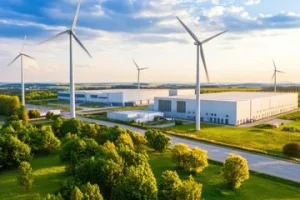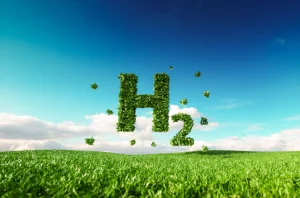Why Hydrogen is the Fuel of the Future?
Hydrogen fuel is a clean, flexible, and highly efficient energy carrier that’s rapidly gaining attention as the world seeks to move away from fossil fuels. When used in a fuel cell, hydrogen combines with oxygen to produce electricity—emitting only water vapor as a byproduct. That means no harmful greenhouse gases or pollutants.
As the simplest and most abundant element in the universe, hydrogen has always been around. But today, with technological advancements and global urgency to decarbonize energy systems, hydrogen is being rediscovered as the fuel of the future. From powering vehicles and industries to storing excess renewable energy, hydrogen is poised to revolutionize how we generate, distribute, and use power.
If you’re searching for long-term clean energy solutions, hydrogen checks all the boxes: sustainable, versatile, and scalable.
Why Hydrogen is the Fuel of the Future
1. Zero Emissions and Environmental Benefits
Hydrogen fuel emits only water when used in a fuel cell. This zero-emission nature makes it ideal for helping countries and industries meet their net-zero carbon targets. Unlike fossil fuels, hydrogen doesn’t contribute to air pollution or climate change.
2. Abundance and Availability
Hydrogen is the most abundant element in the universe. While it doesn’t exist freely in nature, it can be extracted from water (H₂O), natural gas, or biomass. With modern electrolysis methods powered by renewable energy, green hydrogen becomes a truly sustainable fuel.
3. Versatility Across Sectors
Hydrogen’s applications span numerous industries:
- Transport: Fuel cell vehicles (cars, buses, trucks, trains, even aircraft).
- Power: Electricity generation and energy storage.
- Industry: Steelmaking, ammonia production, oil refining.
- Residential: Heating and backup power systems.
Its flexibility makes it more than just a fuel—it’s an energy solution.
4. Energy Storage Solution
One of the biggest challenges with renewable energy like solar and wind is intermittency. Hydrogen solves this by storing excess energy when production is high and releasing it when needed, acting as a long-duration battery.
5. Supports Renewable Energy Integration
Hydrogen bridges the gap between renewable supply and real-time demand. Surplus electricity from solar or wind can be used to electrolyze water into hydrogen, which can then be stored and used later, making grids more reliable.
6. Reduces Dependence on Fossil Fuels
Replacing gasoline, diesel, coal, and natural gas with hydrogen dramatically lowers dependence on fossil fuels. This improves energy security and reduces geopolitical tensions related to oil and gas resources.
7. Ideal for Heavy Transport and Industrial Use
Batteries are great for short-distance travel, but hydrogen excels in:
- Long-haul trucking
- Shipping and aviation
- Heavy industrial machinery
Its high energy density and fast refueling make it the preferred solution where batteries fall short.
Commonly Asked Questions About Hydrogen Fuel
✅ How is hydrogen produced?
Hydrogen can be produced in several ways:
- Grey hydrogen: From natural gas (emits CO₂).
- Blue hydrogen: Same as grey, but with carbon capture.
- Green hydrogen: Using electrolysis powered by renewable energy—cleanest method.
✅ Is hydrogen safe?
Yes, with proper handling and modern technologies, hydrogen is as safe as other fuels. It disperses quickly and is non-toxic.
✅ How expensive is hydrogen?
Green hydrogen is currently more expensive than fossil fuels but is expected to become cost-competitive by 2030 with economies of scale and innovation.
✅ Where is hydrogen already being used?
- Japan and South Korea: Fuel cell cars and buses.
- Europe: Hydrogen-powered trains and energy storage.
- Australia and Middle East: Hydrogen production and export projects.
Future Potential of Hydrogen Fuel
In Energy Storage:
Hydrogen could become a global energy currency, storing and transporting power between regions.
In Freight and Logistics:
Fleet operators are exploring hydrogen to meet emissions targets and reduce fuel costs.
In Decarbonizing Industry:
Hydrogen offers the only viable low-carbon alternative for sectors like steel and cement.
In Homes:
Hydrogen-ready boilers and microgrids may soon power residential communities.
Challenges to Overcome
While promising, hydrogen fuel must address a few hurdles:
- High initial costs
- Lack of infrastructure (refueling stations, pipelines)
- Energy losses in conversion
- Public perception and safety concerns
But these challenges are being tackled by new research, policies, and private investments.
Conclusion: A Cleaner Tomorrow with Hydrogen
Hydrogen is not just a possibility—it’s an inevitable part of the global clean energy shift. Its unique qualities—zero emissions, versatility, and ability to store renewable energy—position it as the fuel of the future. As production costs drop and infrastructure expands, hydrogen will become as common as solar panels or electric cars.
The world is moving toward a hydrogen-powered future. Are you ready to be part of it?




